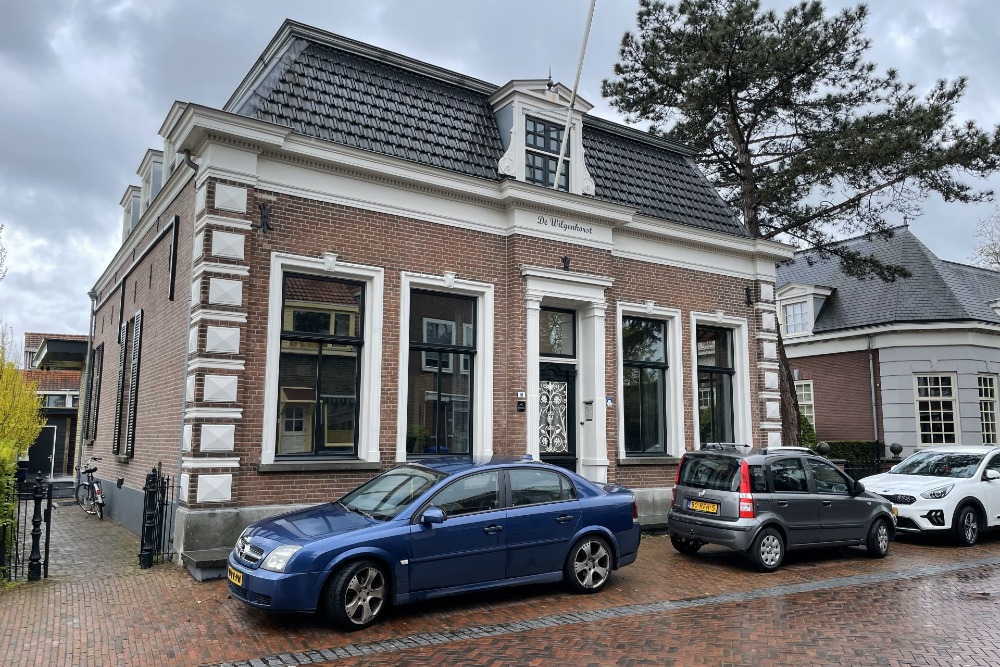Landgraaf, de, Jan
- Date of birth:
- February 11th, 1921 (Sliedrecht, the Netherlands)
- Date of death:
- March 22nd, 1978 (Sliedrecht, the Netherlands)
- Nationality:
- Dutch
Biography
Jan de Landgraaf, pseudonym in the resistance "Dove (deaf) Jan" was a mechanical engineering student before he had to go into hiding in the summer of 1944. He left for the Biesbosch, where many people in hiding were already staying, and joined a resistance group that was already active there.
After capturing two German soldiers, it was decided to detain them. This number grew in a few months to 75 who were locked up in one and later two hidden arks. Jan de Landgraaf acted as sub-commander of this "Biesbosch group" responsible for this. On the night of 4-5 November 1944, after a perilous journey, the prisoners were handed over to the commander of the Polish troops in newly liberated Drimmelen.
After this, he returned to his hometown of Sliedrecht. He joined the spy group Albrecht and made as many as thirty trips from Sliedrecht through the Biesbosch as a line-crosser to deliver messages intended for the Intelligence Bureau in the already liberated Lage Zwaluwe.
Do you have more information about this person? Inform us!
- Period:
- Second World War (1939-1945)
- Rank:
- Burger (Civilian)
- Unit:
- Bureau Inlichtingen (BI), Nederlandse Strijdkrachten in het Westen
- Awarded on:
- August 30th, 1948
"Distinguished himself in battle through outstanding acts of courage, leadership and loyalty from January 1945 until the liberation of the western Netherlands, by travelling 30 times in his canoe along an approximately 18 km long waterway for the Dutch Government's Intelligence Bureau, establishing a secret connection between occupied and liberated Netherlands via the Biesbosch and the Merwede, constantly navigating between numerous extremely vigilant enemy posts and patrolling boats. Furthermore, on one of his trips, when his boat was sunk by enemy fire, he swam and ran through enemy minefields to reach safety. Finally, in association with several other sympathetic Dutchmen, acting as their second-in-command, he took part in raids in the Biesbosch and the capture of small groups of heavily armed German soldiers, who were then held and guarded in motorboats in a remote part of the Biesbosch.
Royal Decree Nr. 8, August 30th, 1948
- Period:
- Second World War (1939-1945)
Sources
- Photo: De Liniecrossers - Linie Crossers Sliedrecht | Leer de liniecrossers kennen
- - FIJNEKAM, LEEN & VAN BOKHORST, ALFONS, De Biesbosch in de Tweede Wereldoorlog, Eigen uitgave, 2021.
- HOEK, PIET VAN DEN, Biesbosch Crossings 1944-1945, Kok Voorhoeve, Kampen, 1993.
- KORPEL, A., De Waard in oorlogstijd 1, De Klaroen, Alblasserdam, 1983.
- MAALDERINK P.G.H., De Militaire Willemsorde sedert 1940, Sijthof Pers, 1982.
- SIMONS, J., Liniecrossers, Omniboek, 2021.
- http://www.onderscheidingen.nl/
- Brons 96, November 2020






